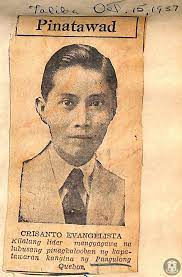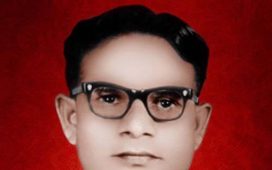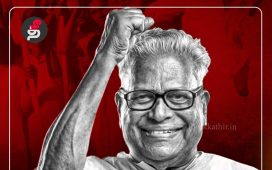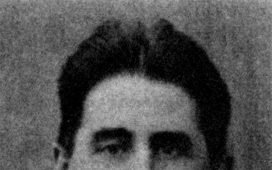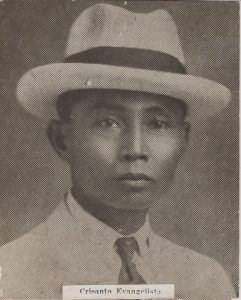 The birthing of capitalism and industrial revolution in Europe gave birth to its antithesis, i.e. the rise of the working class and the formation of communism as an ideology. This ideology was the brainchild of Karl Marx, giving rise to Marxism whose theoretical tenet “class struggle,” advocates that the conflict of interest between the working class and the capitalist class was inevitable and could only be resolved through violent means.
The birthing of capitalism and industrial revolution in Europe gave birth to its antithesis, i.e. the rise of the working class and the formation of communism as an ideology. This ideology was the brainchild of Karl Marx, giving rise to Marxism whose theoretical tenet “class struggle,” advocates that the conflict of interest between the working class and the capitalist class was inevitable and could only be resolved through violent means.
Marxism began to spread in Europe particularly Russia and made its way to other countries where capitalism was on the rise. It eventually caught the imagination of filipino nationalists. Among those who slowly converted to this ideology was Crisanto Evangelista, who was generally regarded as the”Father of Philippine Trade Unionism”.
Evangelista was a skillful organizer of trade unions. He spearheaded the leftist wing of the worker’s movement during its early period. In 1919, Evangelista participated in an independence mission to the US headed by Quezon where he learned from the American Federation of Labor (AFL) and other American trade unionists. He was one of the organizers of the Legionarios del Trabajo which was formed as an offshoot of the strike against the Manila Electric Company.
He was an influential head of the Congreso Obrero de Filipinas (COF), the largest trade federation in the Philippines during its time. He served as its secretary for many years. He also headed the Union de Impresores de Filipinas as its Secretary General. During the 1929 Labor Congress of COF, the radicals led by Evangelista clashed with the conservatives’ workers wing. This caused Evangelista and his group to form the Partido Obrero de Filipinas, otherwise known as Katipunan ng mga Anak Pawis ng Pilipinas (KAP). The aim of KAP was to unite workers and peasants in the struggle against US Imperialism and lift workers from their deplorable working conditions.
KAP was reformed and in its place, the members established the Communist Party of the Philippines (CPP) on November 17, 1930, in conjuction with the 13th anniversary of the October Socialist Revolution of the Soviet Union. Not long after, the government cracked down on CPP after a series of labor strikes. CPP was banned by the Supreme Court of the Philippines. Evangelista and several others, including Dominador Ambrosio, Guillermo Capadocia and Alfonso Pangilinan were arrested and charged with sedition and imprisoned. The CPP was declared illegal by the Supreme Court in October 1932.
He was arrested by invading Imperial Japanese Army troops along with Pedro Abad Santos, and Guillermo Capadocia on January 25, 1942, and executed on June 2, 1942.

